Photo Illustration by Thomas Levinson/The Daily Beast/Getty
As 2022 arrives and the midterm elections get closer, so a new batch of political hopefuls is emerging.
With individuals from all parts of the political spectrum hoping to break through to voters, primary fields are becoming crowded and difficult to parse out. But here are seven standout candidates who are building ground in their respective races—and who could become key players for both parties next year.
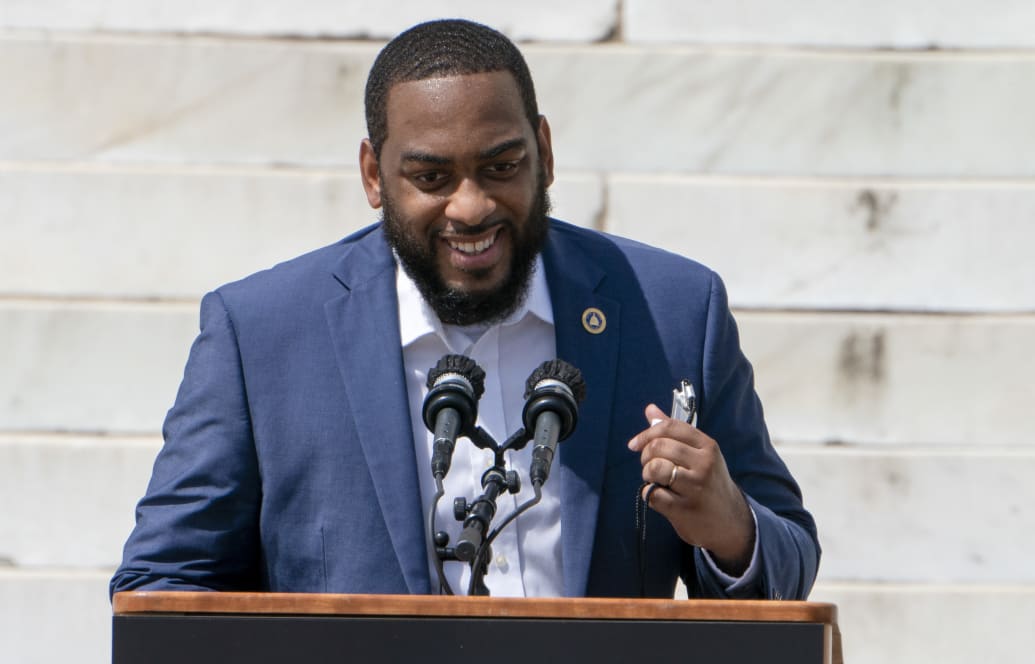
Charles Booker speaks at the March on Washington at the Lincoln Memorial on August 28, 2020 in Washington.
Jacquelyn Martin
Charles Booker (D-KY), U.S. Senate
Booker, a former state representative, launched his latest bid for the U.S. Senate on July 1, roughly a year after Amy McGrath nudged him out during Kentucky’s 2020 Democratic primaries. If successful in the primary, he’ll face off against Republican Sen. Rand Paul, who’s up for re-election in 2022.
Booker’s contest against McGrath garnered national attention for its moderate vs. progressive divide—with Booker receiving endorsements from Sen. Bernie Sanders (I-VT), Rep. Alexandria Ocasio (D-NY), and other like-minded progressives, while McGrath aligned with the so-called establishment. This time around, Booker is a leading contender for the Democratic nomination, but his candidacy is still an uphill battle. Kentucky very much remains a split state, with a Democratic governor and two Republican senators in office.
However, the state has grappled intimately with race and police reform following the death of Breonna Taylor in 2020—issues that Booker has been outspoken about during his time as a public figure. The 2022 campaign centers on a “Kentucky New Deal,” calling for “ending poverty, delivering quality health care to everyone in our Commonwealth, and fixing our crumbling infrastructure.”
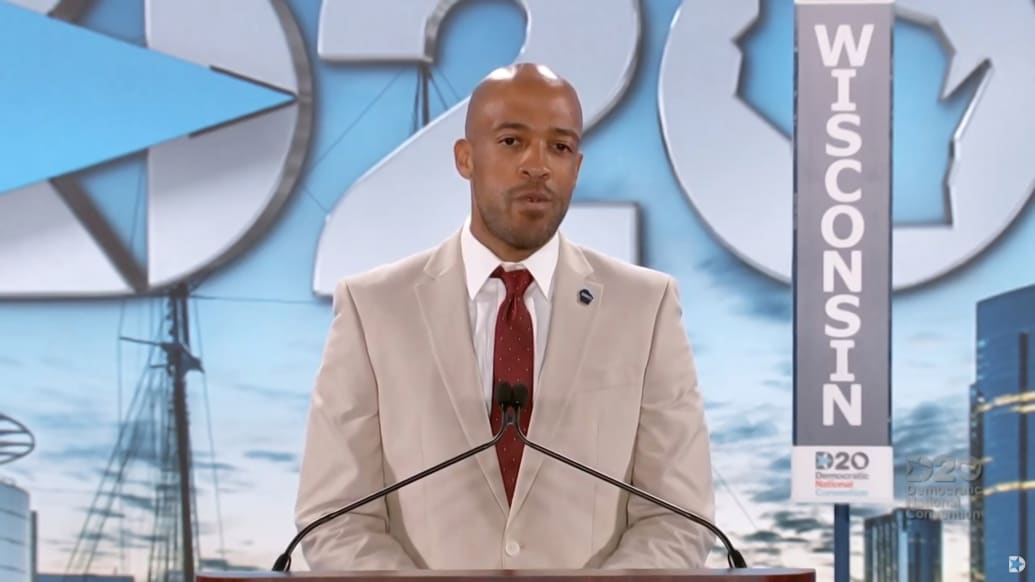
Wisconsin Lieutenant Gov. Mandela Barnes announces the Wisconsin delegates during the Democrats' virtual convention on August 18, 2020.
Handout
Mandela Barnes (D-WI), U.S. Senate
Barnes is currently Wisconsin’s Lieutenant Governor and is running in an open Democratic primary for the state’s 2022 Senate race. The winner could face Republican incumbent Sen. Ron Johnson, who’s been mulling a re-election bid.
Barnes, who is the first Black person to serve as Wisconsin’s lieutenant governor, is a supporter of Medicare for All, climate change legislation, and a slew of other progressive priorities. Among his endorsements are an array of progressive lawmakers, in addition to a coveted nod from House Majority Whip Jim Clyburn (D-SC).
In branding himself as a progressive, however, Barnes could risk isolating himself from his state’s more moderate Democrats and turning voters away to one of his many Democratic opponents, or a Republican, should he win the primary. Democrats’ fate in the Senate is banking on booting Johnson in Wisconsin—a state President Joe Biden won in 2020.
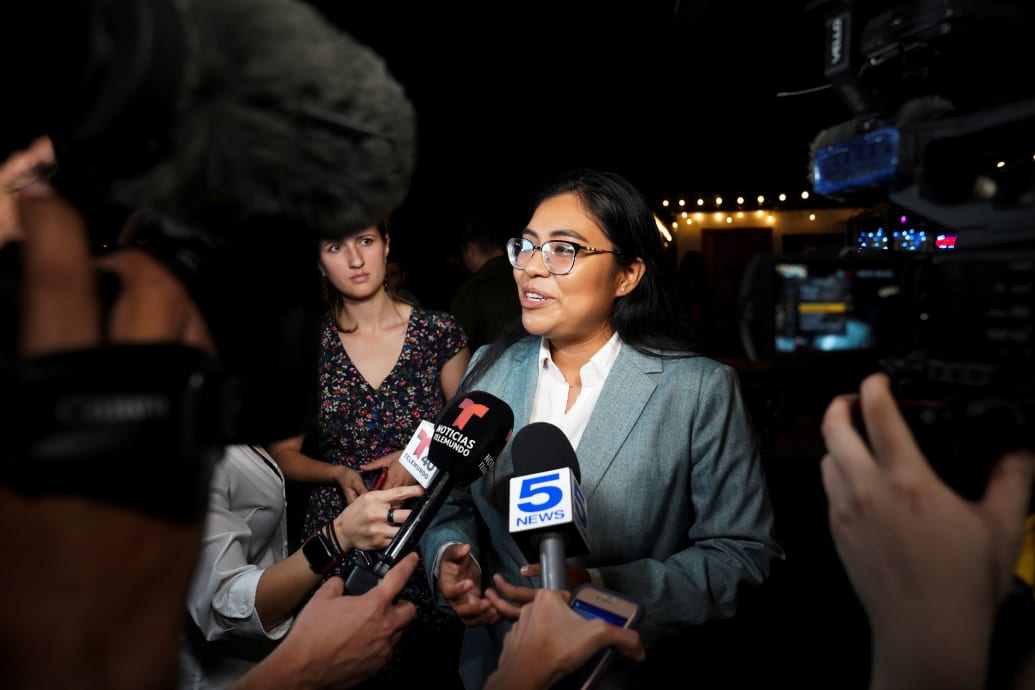
Democrat Jessica Cisneros, who is campaigning for a House seat, gives an interview after speaking to her watch party attendees in Laredo, Texas on March 3, 2020.
REUTERS
Jessica Cisneros (D-TX), U.S. House
Cisneros, an immigration attorney,is running in Texas’ 28th Congressional District against incumbent Rep. Henry Cueller (D-TX), the lone House Democrat to vote against codifying Roe v. Wade into law earlier this year. It’s her second attempt to unseat Cuellar, who dramatically outspent her during the 2020 Democratic primary.
Texas is home of the first Democratic primaries of the 2022 cycle on Feb. 1—and Cisneros’ bid to oust Cuellar is the most high-profile attempt for a progressive insurgency in the state. If she’s successful, it could set the tone for progressive-vs.-moderate races in the following months, of which there are plenty.
Cisneros is backed by Justice Democrats—a progressive group that helped launch figures like Ocasio-Cortez, Bowman, and Rep. Cori Bush (D-MO) to success in their primary campaigns against Democratic incumbents. She’s also been endorsed by a number of Cuellar’s congressional colleagues, including Rep. Jamaal Bowman (D-NY) and Sen. Elizabeth Warren (D-MA).
Her platform includes support for Medicare for All, codifying Roe and “banning bump stocks, high capacity magazines and weapons of war,” among other proposals.
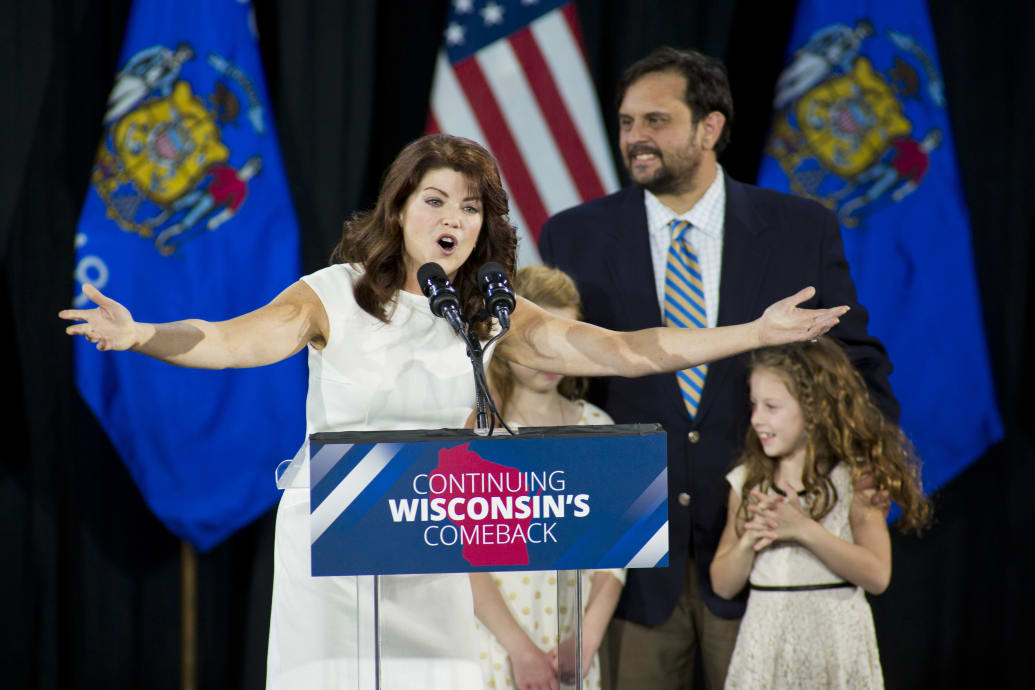
Lt. Gov. Rebecca Kleefisch greets the crowd at Gov. Scott Walker's election night party November 4, 2014 in West Allis, Wisconsin.
Darren Hauck
Rebecca Kleefisch, (R-WI), Governor
The state’s former lieutenant governor has joined a crowded primary to unseat Gov. Tony Evers, a Democrat who faces the same down-ballot difficulties that sank Terry McAuliffe’s bid to reclaim the governor’s mansion in Virginia. But Kleefisch, a former television anchor in Milwaukee who served two terms as lieutenant governor, got a boost when Sen. Ron Johnson (R-WI) declined to run for the post. Although former President Donald Trump has pushed for former Rep. Sean Duffy to throw his hat in the ring, Kleefisch has shaped her platform around Trumpian messaging on an issue that Republicans have successfully nationalized: crime.
“One year ago, Kenosha burned while Tony Evers failed to lead,” Kleefisch said in her campaign launch video in September, referencing the rioting in the city following the police shooting of a Black man in August 2020. “$50 million up in smoke. Our police deserted and disrespected. Jobs destroyed. Lives were lost and small businesses were burned because our governor sided with rioters instead of the people of this community.”
Kleefisch’s aggressive rhetoric—she recently tweeted that prosecutors in the trial of Kyle Rittenhouse were “a complete disgrace, praising the mob who burned our streets as ‘heroes’”—may drown out the more subdued Evers, a former school administrator who is seen as potentially too milquetoast for a state that has seen a spate of violent criminal incidents in the past two years.
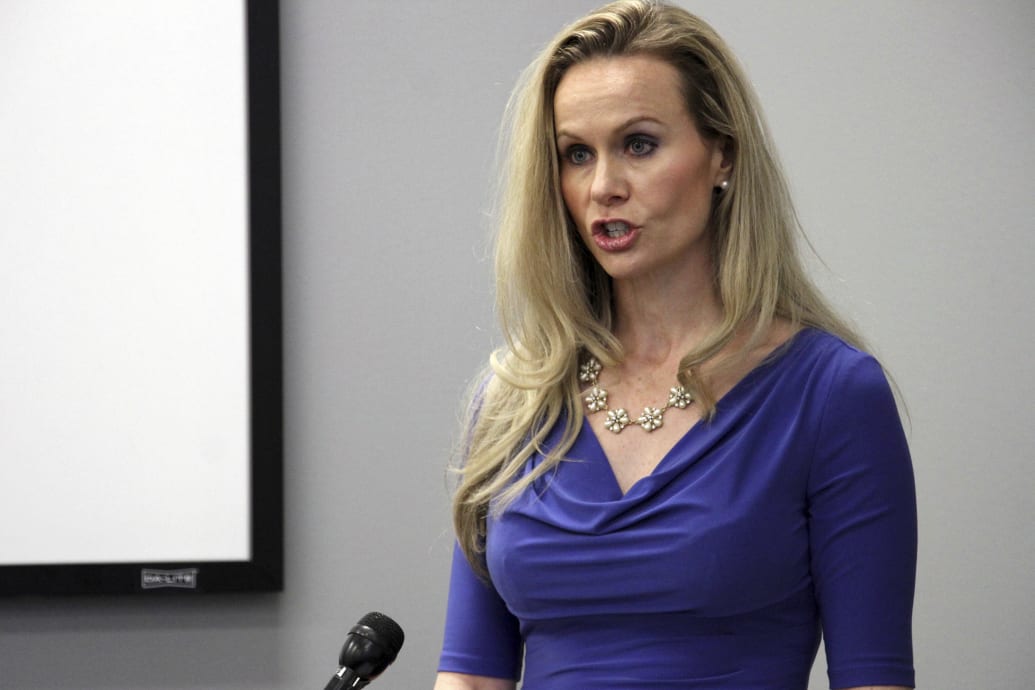
Alaska Department of Administration Commissioner Kelly Tshibaka discusses a report Monday, Nov. 4, 2019, in Anchorage, Alaska.
Mark Thiessen
Kelly Tshibaka, (R-AK), U.S. Senate
Alaska Republican Sen. Lisa Murkowski has beaten intra-party attempts to unseat her before—she was famously the second senator in history to win by write-in after a Tea Party candidate beat her in the 2010 primary—but she’s never faced a rival with the backing of a former president.
Tshibaka, the former commissioner of Alaska’s Department of Administration, hopes to become the second Republican to beat Murkowski in the state’s primary this year, and is aggressively supported by Trump, who has sought political vengeance against each of the seven Republican senators who voted to convict him in his second impeachment trial. Murkowski has already been censured by the state’s Republican Party for her vote, and the relatively little-known Tshibaka has embraced the “MAGA”-style rhetoric of many of her upstart peers.
Although Alaska’s party politics are more complex than most states—and Tshibaka’s past support for so-called “conversion therapy” and opposition to “witchcraft” may be out of step even with many Trump supporters—the race could still end up being a repeat of 2010, particularly with the Alaska Republican Party’s opposition to Murkowski even calling herself a Republican.
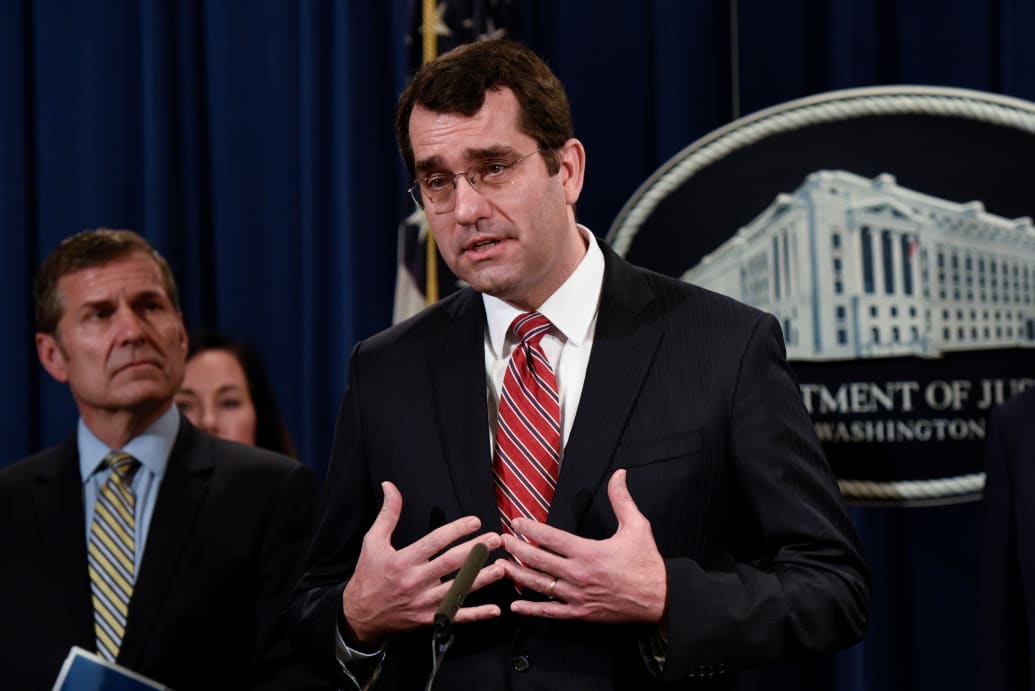
Kansas Attorney General Derek Schmidt speaks during a news conference at the Department of Justice in Washington on February 22, 2018.
REUTERS
Derek Schmidt, (R-KS), Governor
National Republicans see a pickup opportunity in a state where Trump won by nearly 15 points, and have invested in Schmidt, the state’s attorney general, accordingly. In March, the well-funded PAC “Our Way of Life” launched to encourage Schmidt to join the race, and the path to the nomination was made even smoother when former Gov. Jeff Colyer, who had initially been the favorite, withdrew from the race.
While Gov. Laura Kelly, a Democrat, narrowly leads Schmidt in early polling, the race could become a major front for the looming culture war over abortion rights. Only two months after the Supreme Court is widely expected to overturn Roe v. Wade, in the primary election that Schmidt is expected to win, Kansans will vote on an amendment to the state constitution officially barring abortion in the state.
Schmidt, who asked the state supreme court in July to reconsider a 2019 ruling in which it found that abortion is a constitutional right in Kansas, called that decision an effort to “defeat democracy”—an indication that he intends to front-load social issues that highly animate the Republican base ahead of the race.
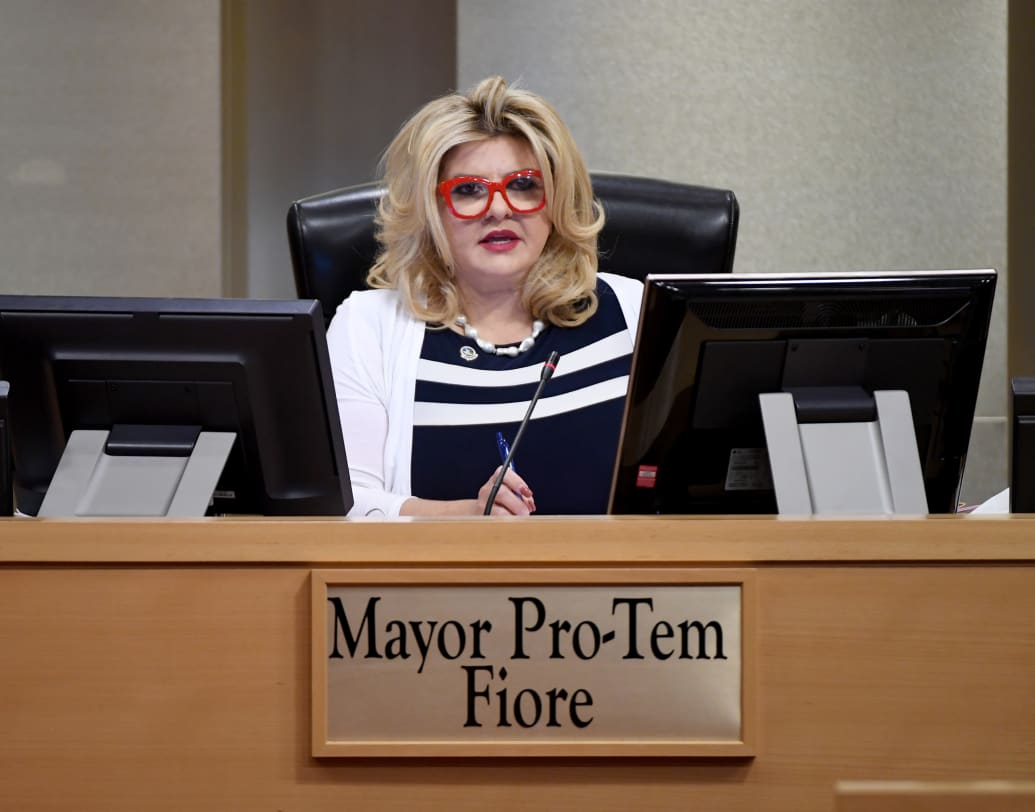
Las Vegas City Councilwoman and Mayor Pro Tempore Michele Fiore speaks during a Las Vegas City Council meeting held amid the coronavirus pandemic at Las Vegas City Hall on May 20, 2020.
Ethan Miller
Michele Fiore, (R-NV), Governor
In a party full of aspiring governors who have sought the approval of the former president, Fiore may out-Trump nearly all of them. A member of the Las Vegas city council and a former long-shot candidate for the state’s 1st Congressional District, Fiore faces stiff competition in the Republican primary—particularly from former U.S. Sen. Dean Heller.
But Fiore’s borderline-fanatical devotion to Trump, whom she defended even after the attack on the U.S. Capitol in January, could serve as a test of the former president’s ability to influence Republican primary voters even out of office.
Though her kick-off video—which included B-roll of her shooting beer bottles labeled “VACCINE MANDATES” and “CRITICAL RACE THEORY”—had politicos laughing their asses off on Twitter, Fiore’s high-camp campaign has immediately garnered national attention from the kinds of small-dollar donors who have helped make similarly baroque politicians household names.

